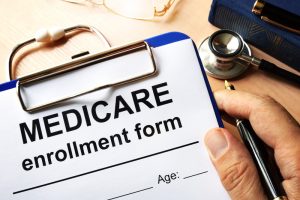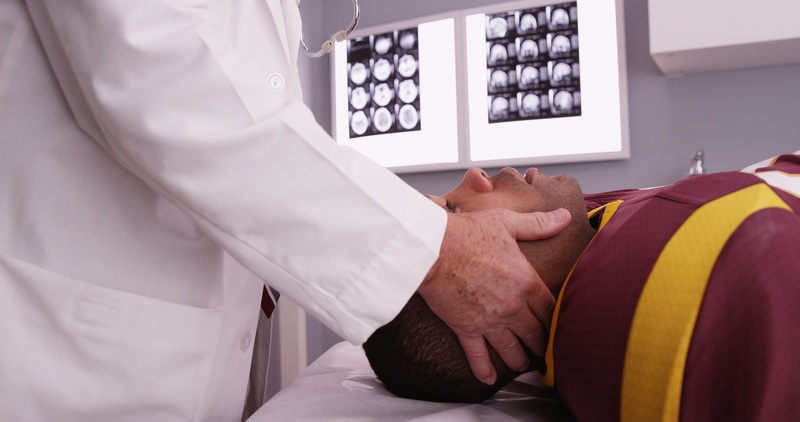By: David W. Hirshfeld, Esq.
Durable medical equipment is commonly sold through sales leads generated through telephone and/or internet contact. These leads often begin with a seemingly innocuous internet survey or an application for something unrelated to DME. This “raw” lead may be as basic as a person’s name, telephone number or email address, and age. The lead is then further developed and “qualified” by obtaining more details about the subject; such as: whether and by whom the subject is insured, what (if any) medical issues does the subject suffer from, the name of the subject’s physician. Ultimately, the lead is sold to a DME vendor who uses the lead to accomplish the sale of medical equipment or supplies. In the course of a lead’s birth and life, it is handled by a chain of companies, some of whom purchase the lead, add a level of detail to it, and sell it for a higher price. In the past year or so, several lead generation companies from the “middle of the chain” have come to me asking me whether their business model gives rise to an illegal kickback. After a bit of research, I gave the lawyerly answer: “It depends.”
The Federal anti-kickback statute provides that it is a felony for a person or entity to knowingly and willfully offer or pay any remuneration to induce a person to refer an individual for the furnishing or arranging for the furnishing of any item for which payment may be made under a Federal health care program, or the purchase or lease or the recommendation of the purchase or lease of any item for which payment may be made under a Federal health care program.[1] Florida’s corollary to this Federal law is the Florida Patient Brokering Act, but the Florida statute applies to all health care services, regardless of whether paid for by a Federal program.[2] The Federal law creates criminal liability, and includes a knowledge requirement. Congress recognized that business models exist that may appear as willfully paying remuneration in exchange for a referral, but which have more innocent motivations, and are less likely to result in abuse to the health care program at issue. In order to give the health care industry a measure of comfort, Congress created several “safe harbors.” If a business model fits within a safe harbor, then it is deemed to not be an illegal kickback under Federal and Florida law.
The Department of Health and Human Services Office of the Inspector General (“OIG”) is the agency charged with enforcing the Federal anti-kickback statute. In November 2008 the OIG considered a situation in which an advertising company created a website that would give prospective patients contact information for a list of chiropractors in their area, in response to a zip code entered by the prospect. The prospect paid nothing for the service, but the chiropractors paid the advertiser a fee for each call or contact from the website that lasted over thirty seconds, regardless of whether the contact resulted in a prospect becoming a patient. This scenario is as close as the OIG has come to opining on a typical DME lead generation.
The OIG found that the chiropractors’ advertising service was not a prohibited kickback, and cited four factors as convincing: (i) the advertising company is not a health care provider or supplier, and is only affiliated with the health care industry through the arrangement at issue; (ii) the advertising program did not target Federal health care program beneficiaries; (iii) the fees paid by the health care practitioners did not depend upon whether the prospect actually became a patient; and (iv) the advertising program did not steer patients to a particular chiropractor.
When applied to the DME context, the OIG opinion and the anti-kickback statutes suggest that leads can be sold for a per-lead fee as long as the leads are not priced, and do not contain information so detailed, such that the purchaser can cherry-pick those leads it wants to purchase based on the likelihood that the lead will result in an actual sale of covered DME. For example, a “raw” lead comprised simply of a prospect’s name, contact information, and interest in speaking with a DME supplier is probably the sort of lead that could be sold for a per-lead fee without running afoul of the anti-kickback prohibitions. As more and more information is added to the lead, such as the type of DME products of interest to the prospect, information regarding the prospect’s insurer and plan coverage, the purchaser will be better able to determine whether the lead is likely to result in a sale of DME (a “qualified” lead). At a certain level of detail, a lead morphs from lead that can be sold on a per-lead basis, to a referral that cannot.
A lead generation company can sell highly detailed qualified leads if that sales relationship fits within the safe harbor for “Personal Services and Management Contracts.”[3] That safe harbor requires that: (a) the aggregate compensation to be paid under the contract must be fixed in advance; (b) the compensation must be consistent with fair market value in an arm’s-length transaction; and (c) the compensation must not be determined in a manner that takes into account the volume or value of any referrals or business otherwise generated between the parties for which payment may be made by a Federal health care program. The requirement that the compensation be fixed in advance does not tolerate a per-lead fee. Fixed in advance would be a weekly, hourly, annual fee.
So, if you are in the lead generation business, your liability for buying or selling health care referrals probably depends upon how detailed and “qualified” the lead is at the time of your transaction. The safe tack is to structure your transactions so that they fit within the safe harbor for Personal Services and Management Contracts so that just in case your leads are qualified enough to constitute “referrals.”
This article focuses on anti-kickback liability associated with DME leads, but there is also liability attached to how the lead is originated, and how the prospect is contacted. Lead generation companies are often well-served by committing their relationships to written agreements with advice from appropriate counsel.
[1] 42 U.S.C. §1320a-7b(b)
[2] FL Statutes §456.054 and §817.505
[3] 42 C.F.R. §1001.952(d)
 By: Matt Fischer
By: Matt Fischer


 By: Michael Silverman
By: Michael Silverman
 By:
By: 
 By:
By:  By:
By: 